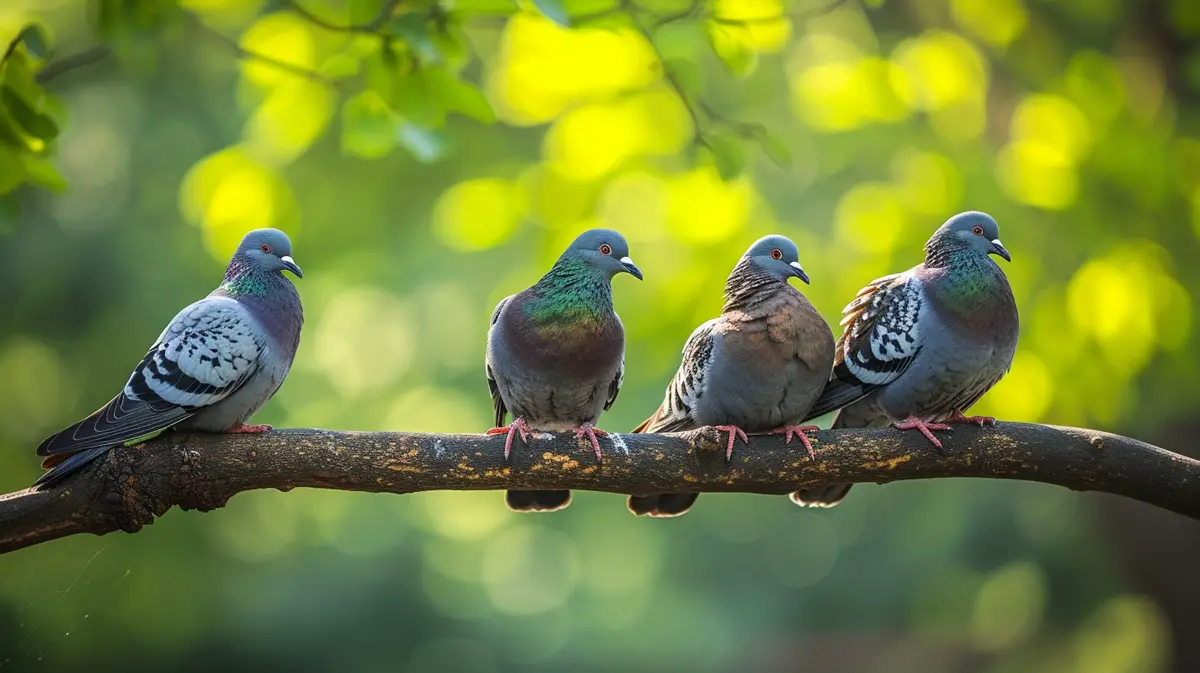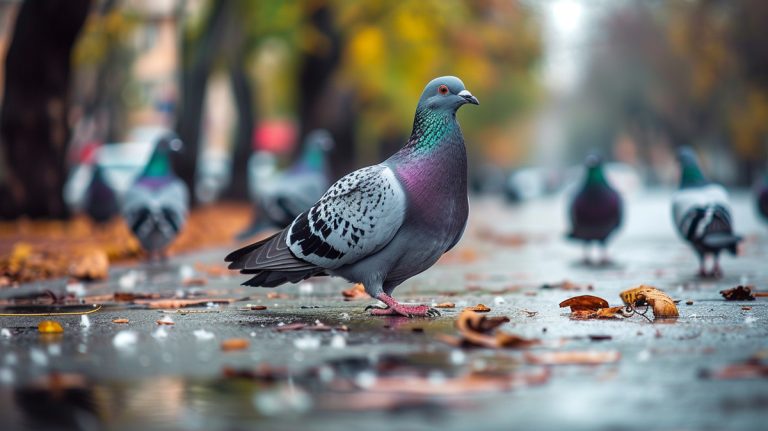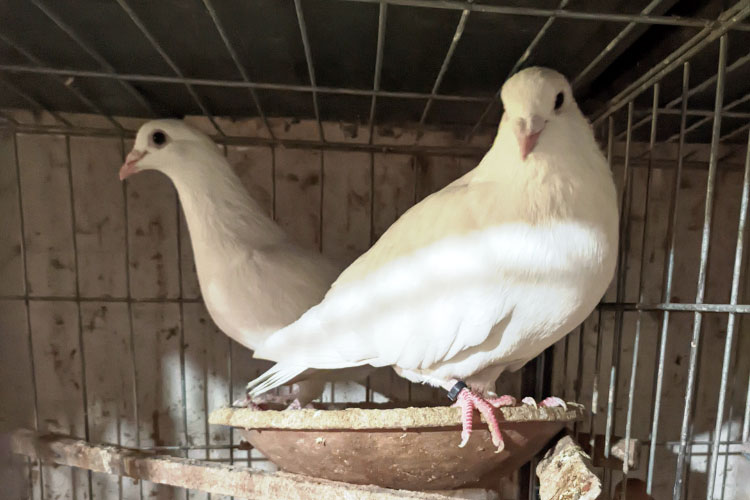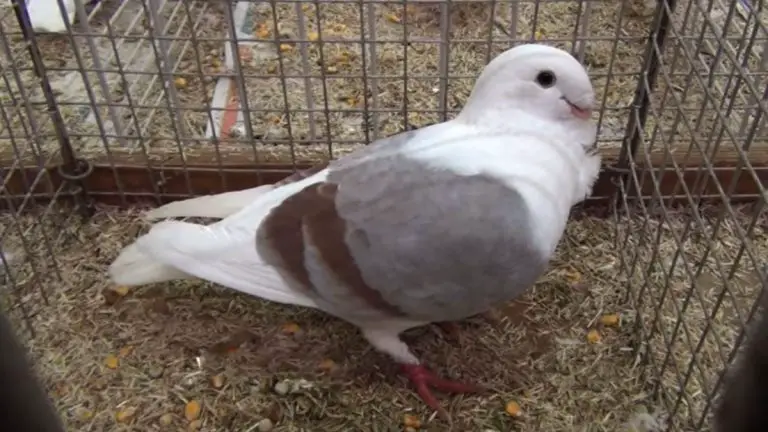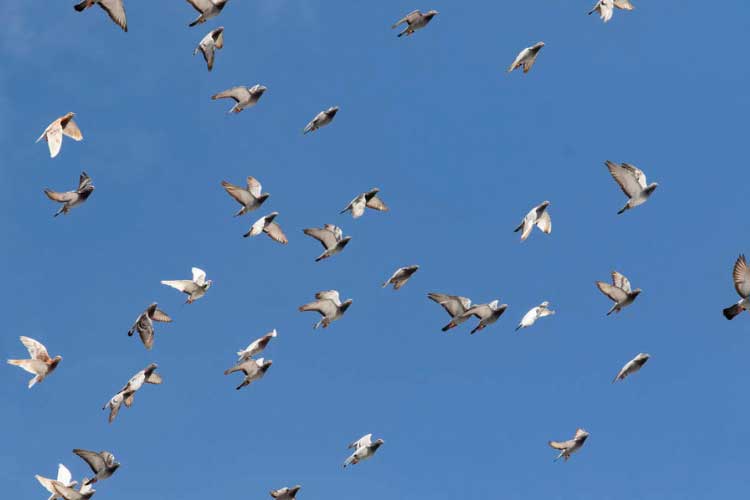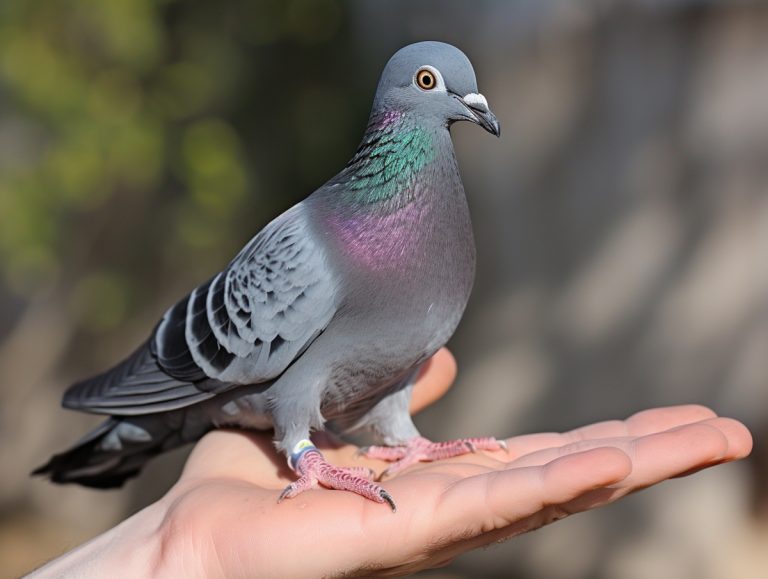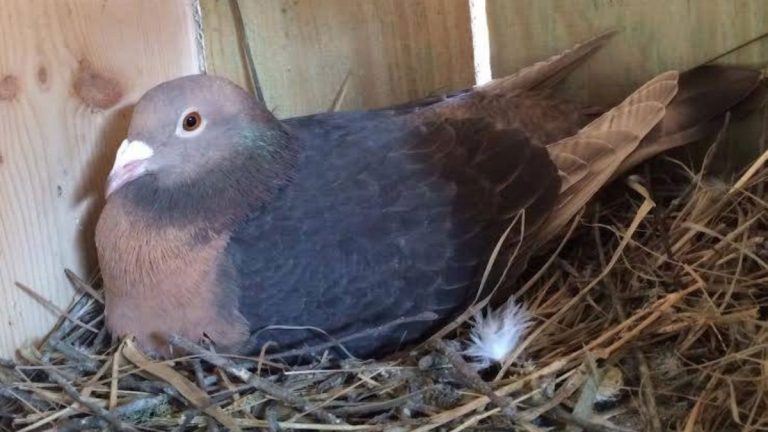Pigeon Foods for Feather Health: Essential Tips
Hey there! If you’re a pigeon enthusiast like me, you know how important it is to keep our feathered friends healthy and happy. And one key aspect of their well-being is their feather health. That’s why I’m here to share some valuable insights into the best pigeon foods for feather health. Trust me, these tips will have your pigeons looking and feeling their absolute best in no time!
Importance of Feather Health in Pigeons

Feather health is essential for pigeons as it plays a crucial role in their overall well-being. As a pigeon enthusiast, I understand the significance of maintaining healthy feathers for these beautiful birds. Let me explain why feather health is so important for pigeons:
- Insulation and Protection: Pigeons rely on their feathers for insulation from extreme temperatures. Healthy feathers provide optimal thermal regulation, keeping pigeons warm during colder seasons and cool during hotter periods. Additionally, feathers act as a protective barrier against environmental factors such as wind, rain, and sun exposure.
- Flight Performance: Feathers are crucial for a pigeon’s ability to fly efficiently. Just like a well-maintained airplane, pigeons with healthy feathers experience less air resistance, enabling them to glide through the air effortlessly. Healthy feathers also contribute to enhanced maneuverability and agility, allowing pigeons to navigate through their surroundings with ease.
- Social Interaction: Feathers play a vital role in pigeon communication and social interaction. Pigeons use their feathers to display dominance or submission during courtship rituals or territorial disputes. By maintaining clean and vibrant feathers, pigeons can communicate their health, vitality, and overall condition to other pigeons, establishing their status within the flock.
- Overall Health Indicator: The condition of a pigeon’s feathers can reveal important insights about its overall health. Dull, disheveled, or missing feathers may indicate underlying health issues such as malnutrition, disease, or parasites. On the contrary, glossy, well-groomed feathers are a sign of a healthy and thriving pigeon.
Understanding Pigeon Nutritional Needs
Feeding pigeons a balanced and nutritious diet is crucial for maintaining their feather health and overall well-being. As an expert in pigeon care, I can provide valuable insights into understanding their nutritional needs.
Pigeons require a variety of foods to meet their nutritional requirements. While they are known to scavenge for food, it’s important to supplement their natural diet with pigeon-specific foods to ensure they receive all the necessary nutrients.
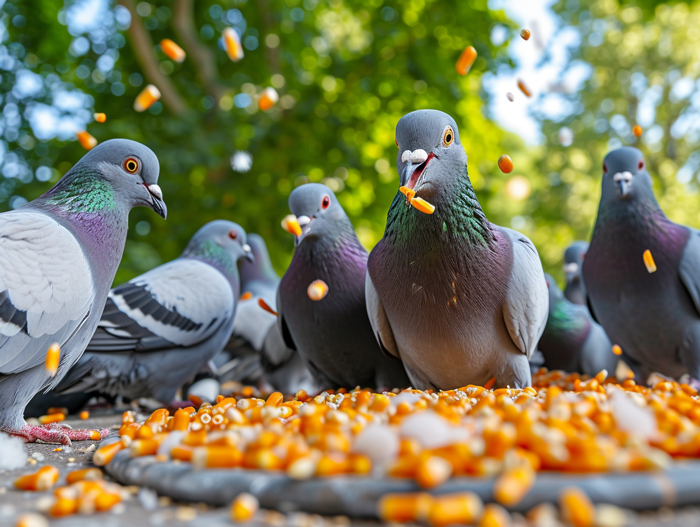
Here’s a breakdown of the key nutrients that are essential for maintaining healthy feathers in pigeons:
- Protein: Pigeons require a high protein diet to promote feather growth and repair. Protein is the building block of feathers and plays a crucial role in maintaining their strength and integrity. Including protein-rich foods such as legumes, seeds, and grains in their diet is vital.
- Vitamins and Minerals: Pigeons need an adequate supply of vitamins and minerals, including vitamin A, D, E, and B complex, as well as calcium, phosphorus, and iron. These nutrients support overall feather health, growth, and vitality. Fresh fruits, vegetables, and a quality pigeon feed mix can provide the necessary vitamins and minerals.
- Healthy Fats: Healthy fats, such as omega-3 fatty acids, are essential for maintaining the luster and quality of pigeon feathers. Including foods like flaxseeds, fish oil, and nuts can provide the necessary healthy fats for optimal feather health.
- Hydration: Water is often underestimated when it comes to feather health. Proper hydration is essential for maintaining the strength and flexibility of feathers. Make sure pigeons have access to clean and fresh water at all times.
Remember to avoid feeding pigeons foods that are harmful to their health. Certain foods like chocolate, caffeine, and salty snacks should never be given to pigeons as they can be toxic. Additionally, it’s important to avoid feeding them processed foods or those high in additives and preservatives.
By understanding the unique nutritional needs of pigeons and providing them with a balanced and wholesome diet, you can ensure their feathers remain healthy and vibrant. Feeding them the right foods not only improves their feather health but also contributes to their overall well-being.
Key Nutrients for Feather Health
When it comes to maintaining feather health in pigeons, providing the right nutrients is essential. A balanced and nutritious diet plays a crucial role in keeping their feathers healthy and vibrant. Here are some key nutrients that are important for maintaining feather health in pigeons:
1. Protein: Protein is the building block of feathers. It provides the necessary amino acids for feather growth and maintenance. Including sources of high-quality protein in a pigeon’s diet, such as seeds, grains, and legumes, is important for healthy feathers.
2. Vitamins: Vitamins play a vital role in the overall health of pigeons and their feathers. Here are some important vitamins for feather health:
- Vitamin A: Vitamin A is crucial for maintaining the integrity of the feathers. It supports feather strength and reduces the risk of feather breakage and damage.
- B Vitamins: B vitamins, including Biotin, Niacin, and Riboflavin, are important for feather growth and health. They support the production of keratin, a protein that forms the structure of feathers.
- Vitamin E: Vitamin E is an antioxidant that helps protect the feathers from free radical damage. It also supports feather strength and flexibility.
3. Minerals: Minerals are essential for maintaining healthy feathers in pigeons. Some key minerals for feather health include:
- Zinc: Zinc plays a role in feather pigmentation and helps maintain the strength and structure of the feathers.
- Copper: Copper is important for feather pigment development and helps prevent feather discoloration.
- Calcium: Calcium is necessary for overall bone health, which indirectly contributes to feather health.
4. Healthy Fats: Including healthy fats in a pigeon’s diet is important for maintaining feather health. Fats provide essential fatty acids that support feather growth, strength, and moisture retention. Good sources of healthy fats for pigeons include flaxseed, sunflower seeds, and avocados – in moderation, of course.
5. Hydration: Hydration plays a crucial role in maintaining feather health. Proper hydration ensures that feathers are flexible and resistant to breakage. Make sure to provide clean and fresh water to your pigeons at all times.
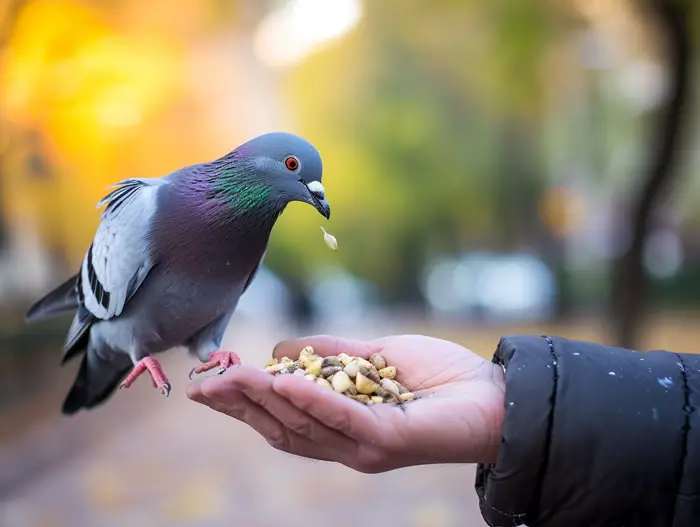
Best Foods for Promoting Feather Health
When it comes to maintaining healthy and vibrant feathers in pigeons, providing them with the right foods is essential. A balanced and nutritious diet plays a crucial role in promoting feather growth, strength, flexibility, and moisture retention. Let’s explore some of the best foods that can help pigeons maintain optimal feather health:
- Protein-rich foods: Protein is essential for feather development and repair. Include foods such as:
- Vitamin A: Vitamin A is crucial for maintaining healthy feathers and promoting proper feather growth. Good sources of vitamin A include:
- B vitamins: B vitamins aid in feather health by improving feather strength and flexibility. Incorporate these foods into their diet:
- Vitamin E: Vitamin E is important for maintaining feather moisture and preventing dryness. Foods rich in vitamin E include:
- Zinc: Zinc is a mineral that helps in the production of keratin, an important component of feathers. Some good sources of zinc include:
- Copper: Copper contributes to the pigmentation of feathers, ensuring their vibrant colors. Foods high in copper include:
- Calcium: Calcium is essential for strong and healthy feathers as it helps in producing strong feather shafts. Include these calcium-rich foods in their diet:
Remember, in addition to providing these foods, it’s crucial to ensure that your pigeons have access to clean and fresh water at all times. Proper hydration is necessary for overall feather health.
By incorporating these nutritious foods into their diet, you can help your pigeons maintain healthy and vibrant feathers. Remember, a balanced and diverse diet is key to ensuring optimal feather health in these beautiful birds.
Tips for Incorporating Healthy Foods into Pigeons’ Diet
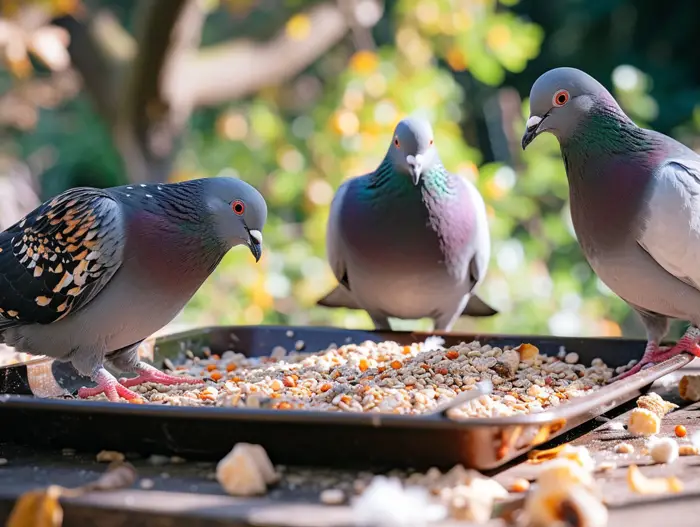
Feeding pigeons a well-balanced diet is crucial for maintaining their feather health and overall well-being. Here are some tips to help you incorporate healthy foods into your pigeons’ diet:
- Introduce a Variety of Nutrient-Rich Foods: Expand your pigeons’ diet by providing a diverse range of nutrient-rich foods. This will ensure they receive a wide spectrum of essential nutrients. Consider offering a mixture of peas, lentils, quinoa, carrots, spinach, sweet potatoes, whole grains, and eggs.
- Include Leafy Greens for Optimal Nutrition: Leafy greens like spinach and broccoli are excellent sources of vitamins, minerals, and antioxidants. They provide essential nutrients that support feather health and growth. Be sure to finely chop or shred them to make them more manageable for pigeons to eat.
- Add Healthy Fats for Feather Moisture and Shine: Including healthy fats in your pigeons’ diet can improve feather moisture retention and give them a beautiful shine. Offer foods such as almonds, sunflower seeds, avocado, and pumpkin seeds as occasional treats.
- Incorporate Protein-Rich Foods for Feather Strength: Protein is essential for the growth and strength of feathers. Offer protein-rich foods like chickpeas, seafood, mushrooms, liver, and nuts and seeds to ensure your pigeons receive an adequate amount of this important nutrient.
- Include Dairy Products for Calcium and Vitamin D: Incorporating dairy products like yogurt and cheese into your pigeons’ diet can provide them with calcium and vitamin D, which are important for healthy bones and feathers. Ensure that any dairy products you offer are plain and free from added sugars.
- Ensure Proper Hydration: Adequate hydration is vital for maintaining healthy feathers in pigeons. Always provide fresh and clean drinking water for your pigeons. Consider adding a water source that allows them to immerse themselves, as pigeons enjoy bathing to keep their feathers in good condition.
Remember, maintaining a balanced and diverse diet is key to promoting feather growth, strength, flexibility, moisture retention, pigmentation, and strong feather shafts in pigeons. By following these tips, you can provide the best nutrition for your pigeons, ensuring they have vibrant and healthy feathers.
Conclusion
Providing pigeons with a balanced and diverse diet is crucial for maintaining their feather health. By incorporating nutrient-rich foods such as peas, lentils, quinoa, carrots, spinach, sweet potatoes, whole grains, and eggs, we can ensure that pigeons receive the necessary vitamins and minerals for optimal feather growth and strength. Leafy greens like spinach and broccoli offer essential nutrients, while healthy fats from almonds, sunflower seeds, avocado, and pumpkin seeds improve feather moisture and shine.
Protein-rich foods like chickpeas, seafood, mushrooms, liver, and nuts and seeds contribute to feather strength, while dairy products like yogurt and cheese provide calcium and vitamin D. Adequate hydration is also important for maintaining healthy feathers.
Remember, a well-rounded diet is key to promoting feather growth, strength, flexibility, moisture retention, pigmentation, and strong feather shafts in pigeons. By following these tips and ensuring a varied diet, you can help your pigeons achieve and maintain optimal feather health.
